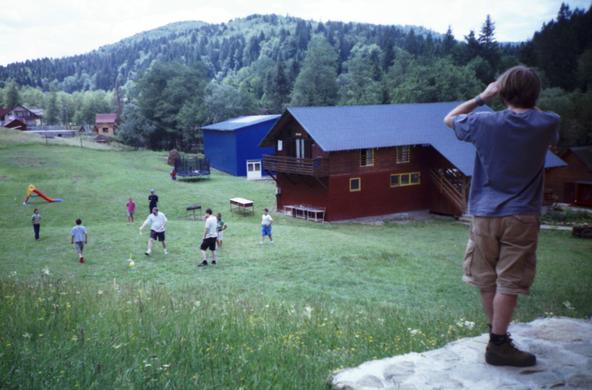Thinking about Forests – What happens when nineteen teachers have the opportunity to study how forest ecosystems function? You get the potential to engage hundreds of students in thinking about forests as dynamic, exciting systems that shape the quality of the world we live in, from cleaning water and cooling the environment to preserving biodiversity.
Schoolyard Ecology – Dr. Alan Berkowitz, Head of the Education Program at the Cary Institute of Ecosystem Studies in New York's Hudson Valley, is a leader in schoolyard ecology. For more than 30 years, his education team has been developing curricula that embraces place-based learning, inquiry, and data collection and interpretation. Their most recent installment – on school woodlands – was made possible through a generous grant from ASPB's Plant BLOOME program.
Tree Diversity – The School Woodland Ecosystem Study Project seeks to increase teachers' and students' understanding of schoolyard tree diversity, so they can develop and test claims that compare different forest types. This includes establishing long-term schoolyard study plots and using lesson plans, data collection protocols, and statistical analysis to show students the real-world importance of plant ecology.

Scientist and Teacher Fellow Collaborations – Work started during the 2014-2015 academic year, when Cary Institute educators selected five Teacher Fellows representing urban, suburban, and rural school districts to create new lessons. Fellows had the opportunity to work with Cary Institute scientists, tapping into their expertise on forest and freshwater health, climate change, urban ecology, disease ecology, and invasive species. During the spring, Fellows piloted their woodland ecology curriculum with their middle and high school classes.
Dissemination – Findings were then shared with other teachers at a Summer Institute held on the Cary Institute's campus from June 29 to July 2. Nineteen teachers attended, hailing from Long Island to Troy, NY. Led by Dr. Berkowitz and Cary educator Lia Harris, the workshop gave teachers hand-on experiences exploring why tree diversity matters – from investigating differences in leaf area index and rates of litter decomposition, to exploring how seed size relates to dispersal and seedling growth.
Digging Deeper – During topical explorations, teachers collected data and learned practical ways of bringing inquiry-based learning back into their classrooms. As one participant noted, "The mix of lectures from scientists who work on the content and the lesson plans created and used by teachers in the field linked theory, content, and practice perfectly."
New Impacts – Cary Institute educators will engage eight new Teacher Fellows for the 2015-2016 academic year. They look forward to discovering how the woodland ecosystem lessons affect student learning, and will continue to offer school year workshops to support teachers in their implementation.
Your Turn! Educators are invited to use the School Woodland Ecosystem Study Project materials in-progress.





